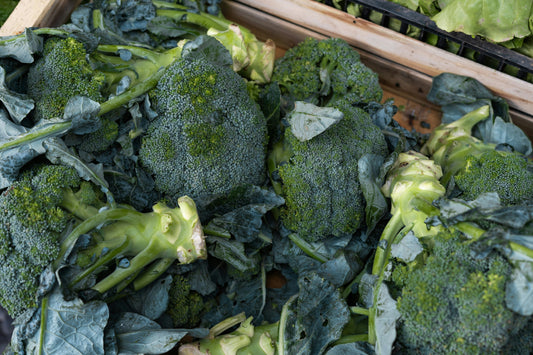
Just eat the cake! (and other things I have learnt as a nutritionist)
Jessica Giljam BrownIn fact, it’s better if you aren’t. If I tried to eat what I perceive to be the perfect diet 100 percent of the time, I would go insane. Putting pressure on yourself to eat perfectly and exercise every day is going to end in tears. Sure, you can keep it up for a few weeks or even a few months, but after a while, the pressure of trying to be ‘perfect’ starts to take its toll. Stick to the 80/20 rule - 80 percent of the time you eat well and exercise, 20 percent of the time you eat the giant slice of chocolate cake, drink some wine with you friends and have fish and chips on the beach. Don't deprive yourself, wellbeing is more than just diet, it’s your emotional health too.
What works for someone else might not work for you
Every human is designed and built slightly differently, and the expectations and demands that we place on our bodies differ from person to person, so it is unreasonable to think that one way of living and eating is right for all. It's perfectly ok to have different views and to eat differently from other people, there are plenty of ‘experts’ the world over that will try and tell you that their way of eating is the only way to do it - but this simply isn't true. Follow your gut when it comes to choosing how you should eat; if something sounds unreasonable, too hard, or just plain weird - then it probably isn't right for you.
Just because you know what should do, doesn't mean you always do it
Sure I know that I feel better when I don't binge on bread and cheese, chocolate and wine - but sometimes I just don't care. There are times when I eat ‘unhealthy’ foods mindfully and really enjoy them, then there are other times when I say fu*k it and can eat my weight in cheese in front of the TV. So why do I do that if I know I'm going to feel crappy after and get a rash on my face? Because food isn't just about nutrition, for 95 percent of people there is a major emotional component to food and eating. Being mindful around food is an ongoing project of mine, and should be the first place to start when trying to change your health. If you are trying to lose weight, cut down on sugar or exclude foods which cause a reaction then you first need to look at your relationship with food and find strategies to decrease the emotional connections with food.
There’s no such thing as a superfood
All whole foods are super foods. Any food that is grown naturally and is unprocessed has a place in a healthy diet. Each food provides a different set of nutrients and has benefits to offer you. Don’t get sucked into the super food branding, if it was grown naturally and is unprocessed then it eat it. Simple as that.
Calories mean very little
Don’t get me wrong, you can’t pig out every day and still expect to stay at a healthy weight, but what you eat is far more important than how much you eat. Counting calories is far less important than having balanced hormones, eating the right amount of nutrients, eating whole foods and exercising. Too many people get caught up on tracking their food and ignore all the other aspects of a healthy diet, and are often disappointed when they don't see the results they want. Focus instead on high-quality whole food, if you are eating whole foods and a diet high in vegetables and low in refined foods your body will let you know when your hungry and when you have eaten enough - no tracking app needed.
Listen to your body (because health professionals don't know everything)
You know better than anyone (experts included) if a food serves you or not. You know if you feel ‘off’ after eating a certain food. Many people will tell you that eating gluten or dairy produces ill effects in them, despite no physical evidence of an intolerance or allergy. Pay attention to the cues you get when eating different foods. If you feel heavy, bloated, itchy, moody, or sleepy after certain foods then this is a pretty good sign that these foods are not serving you. Try to eliminate these foods for a while and see if your symptoms improve or disappear.



